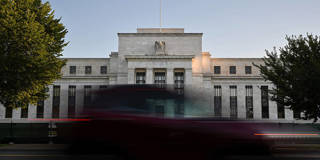OnPoint Subscriber Exclusive
Longer Reads provide in-depth analysis of the ideas and forces shaping politics, economics, international affairs, and more.

The World Needs a Humble Approach to Central Banking
Central banks cannot solve all that ails our economies and should not be expected to solve problems that other actors can better address. Instead, central banks and their leaders should focus on three objectives: price stability, financial stability, and macroeconomic stability.
WASHINGTON, DC – As the world continues to experience a prolonged period of unanticipated inflation caused by economic and non-economic shocks over the past four years, it is time for a frank reassessment of central banking and monetary policy. It is time to acknowledge what we got right and where we went wrong, to recognize the limits of our data and understanding, and to own up to the weaknesses of our models and frameworks. Above all, it is a time for humility – and for a return to core goals.